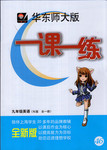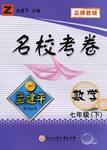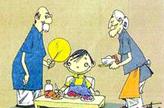阅读下面短文,根据所读内容,在文章后小题的空格里填入一个最恰当的单词。
注意:每个空格只填一个单词。
It seems school children all over the world complain about their school food. Cherie Blair, wife of former British Prime Minister Tony Blair, said that she would prepare a packed lunch for her son if school dinners do not improve. So what do students of your age eat for lunch at school?
Japan
High schools have canteens, which serve everything from noodles to rice, but not burgers and chips. Other children bring food from home such as cold rice balls, meat or fish, pickles(泡菜) and vegetables.
Students take home a menu for the coming month containing notes on nutrition value. Twice a year parents are invited to have a taste of the food. The class with the fewest leftovers(剩饭) at the end of the month receives a prize.
United States
A typical menu from a US school is made up of a hamburger with fried potatoes or roast chicken, lettuce and pickles, fruit and cookies. School lunches must also provide at least one-third of the daily dietary allowances(定量) of protein, vitamin A, vitamin C, iron, calcium and calories.
Australia
Meat pies, sausage rolls and hot dogs are all traditional dishes in Australian school shops. But as the nation pays more attention to children’s health, healthier foods have started to find their way onto school menus.
Many schools have used a traffic light system. The sale of red-labelled foods, including pastries, chocolate and soft drinks, is served only twice a week. Healthier green-labelled foods such as sushi, sandwiches, corn and watermelon, however, are available every day.
In some schools, students have a choice of up to 89 foods to choose from, including popcorn and rice.
South Africa
Most of South Africa’s schools do not serve meals at all. Classes end at 1:30 pm and students get their own lunches. Many students bring food from home, usually sandwiches.
Fast food and fried food sell the best among students, which has led to a rise in obesity among children. But as more people began to realize the fact that being too fat may cause different diseases, some schools in towns have led the way towards better nutrition(营养). Now students at these schools are provided with lunches of porridge with vegetables, such as cabbages, onions, beans, carrots and tomatoes.
Schools serve different foods in different 1 .
|
Japan
| In high schools, children can buy everything, such as noodles and rice. But they can’t buy burgers and 2 from canteens.
Some children 3 food from their homes.
The class will get a prize if they have the 4 leftovers in a 5 .
|
United States
| Children can get 6 of daily nutrition from their lunch at school.
|
7
| School shops 8 students with traditional dishes.
The sale of green-labelled foods is served every day, 9 Red-labelled foods are sold once a week.
|
South Africa
| Students like eating fast food and fried food so that they are overweight.
Students in some schools in towns can eat vegetables to 10 fit.
|

 华东师大版一课一练系列答案
华东师大版一课一练系列答案 孟建平名校考卷系列答案
孟建平名校考卷系列答案